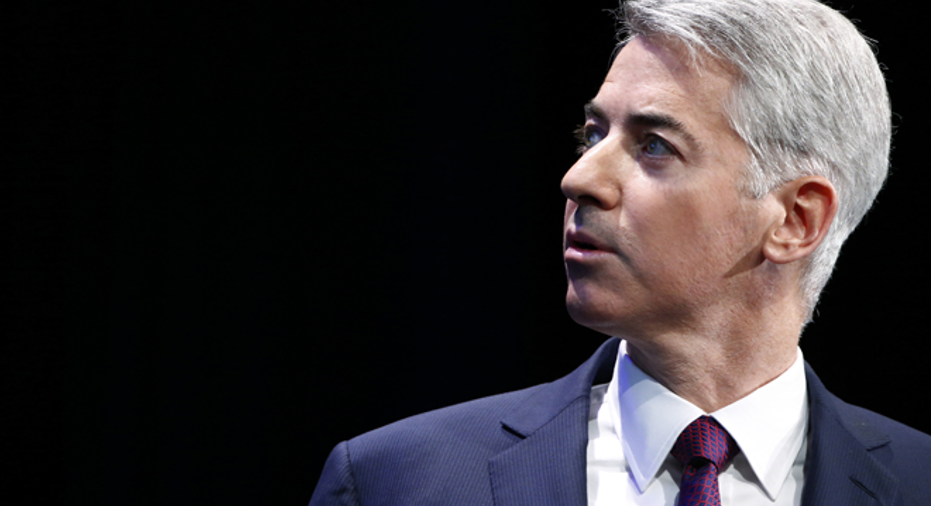Every Leader’s Achilles Heel

This might be hard to believe, but every executive and business leader has the same Achilles heel: getting too close to a situation and losing perspective. That’s when we make big mistakes. Don’t take it personally; it’s a surprisingly common failure mode among otherwise smart and competent professionals.
Which begs the question: how can that be? Is it some sort of temporary psychosis that makes us lose touch with reality? Does our self-awareness suddenly abandon us and go on vacation?
Actually, the culprit is that we fall victim to one of the most insidious pitfalls in the business world: Hubris. Overconfidence. Success makes us think we’re infallible. And we somehow forget the age-old adage that past performance is no indication of future results.
The great irony is that, the closer we get to the situation, the more vehement our denials that we’re not getting too close. Take it from me. If you want to see a CEO really dig in his heels, merely suggest that he might be losing his objectivity and should perhaps step back a bit. After that, he’ll never let go.
But there is one thing that usually snaps us out of it in a heartbeat: an enormous disaster caused by our own foolishness. A big financial loss or public humiliation typically does the trick ... at least after our shareholders read us the Riot Act and we’ve had some time to absorb what colossal dopes we’ve been.
Usually, that only has to happen once, but there are exceptions.
The first is if we’re never held to account. Lately when CEOs take ludicrous risks with other people’s money and fail – when they let their egos write checks that reality can’t cash – instead of showing them the exit sign, we give them enormous exit packages. Then they get hired somewhere else and do it all over again.
The second exception is when top executives sort of go off the rails and become delusional. For every high-profile example like Enron and WorldCom there are plenty more you’ve never heard of. It happens. Unfortunately, it happens a lot.
Just yesterday I was watching activist investor Bill Ackman demonstrate – not for the first but for the second time in recent memory – that he has lost all objectivity. And I’m wondering why last year’s brush with disaster at JC Penney (NYSE:JCP) didn’t wake him up to the perils of getting too emotionally attached to his own high-stakes bets.
To refresh your memory, it was just a year ago that Ackman’s handpicked CEO to turn around JC Penney, former Apple (NASDAQ:AAPL) retail chief Ron Johnson, so spectacularly decimated the company that it’s still not clear if the 100-year-old brand will survive. That sparked a public boardroom brawl that led to Ackman stepping down, selling his entire stake, and taking a huge loss.
At the time, Starbucks (NASDAQ:SBUX) CEO Howard Schultz called Ackman “the architect and recruiter of Ron Johnson” and “the strategy” that nearly destroyed the company -- a sentiment that I agreed with wholeheartedly.
That should have been a wakeup call for the hedge fund manager. He should have realized right then and there that, as brilliant and savvy as he is, he had gotten too close to the situation and, as a direct result, made some enormously bad decisions.
But that didn’t happen. Instead, Ackman later took his $1 billion short position against Herbalife (NYSE:HLF) to a whole new level. He publicly announced that he would “expose incredible fraud” at Herbalife in “the most important presentation that I have made in my career,” and that “we won’t disappoint.”
Granted, he gave an impassioned pitch calling Herbalife “a criminal enterprise” and one of “the great frauds of all time.” Maybe he’s right. I certainly have no love for multi-level marketing or nutritional supplement companies and Herbalife is both. But after spending $50 million on an investigation, not to mention that over-the-top setup, all Ackman succeeded in doing was sending shares of Herbalife soaring 25% in their best one-day performance ever.
If you’ve never heard of a hedge fund manager spending that kind of money investigating a company he’s shorted, you’re not alone. I haven’t either. The guy has clearly crossed some sort of line, and I don’t mean that in a good way.
Perhaps we all should have seen the writing on the wall late last year when, right on the heels of a very public defeat at JC Penney, Ackman vowed to take his fight against Herbalife “to the ends of the earth,” even with heavyweight Carl Icahn betting against him. If that doesn’t sound like the guy is too close to the situation, I don’t know what does.
Not to pick on Ackman or activist investors. I’ve certainly seen plenty of CEOs make the same sort of mistake. I guess we’ve all been there. But the point is, when it comes to high-stakes business, when you’re playing with other people’s money, you should only have to make that mistake once. After that, you should be more aware of your own emotions. Your self-awareness should be on high alert for situations that draw you in like a moth to a flame. We all know how that turns out.



















